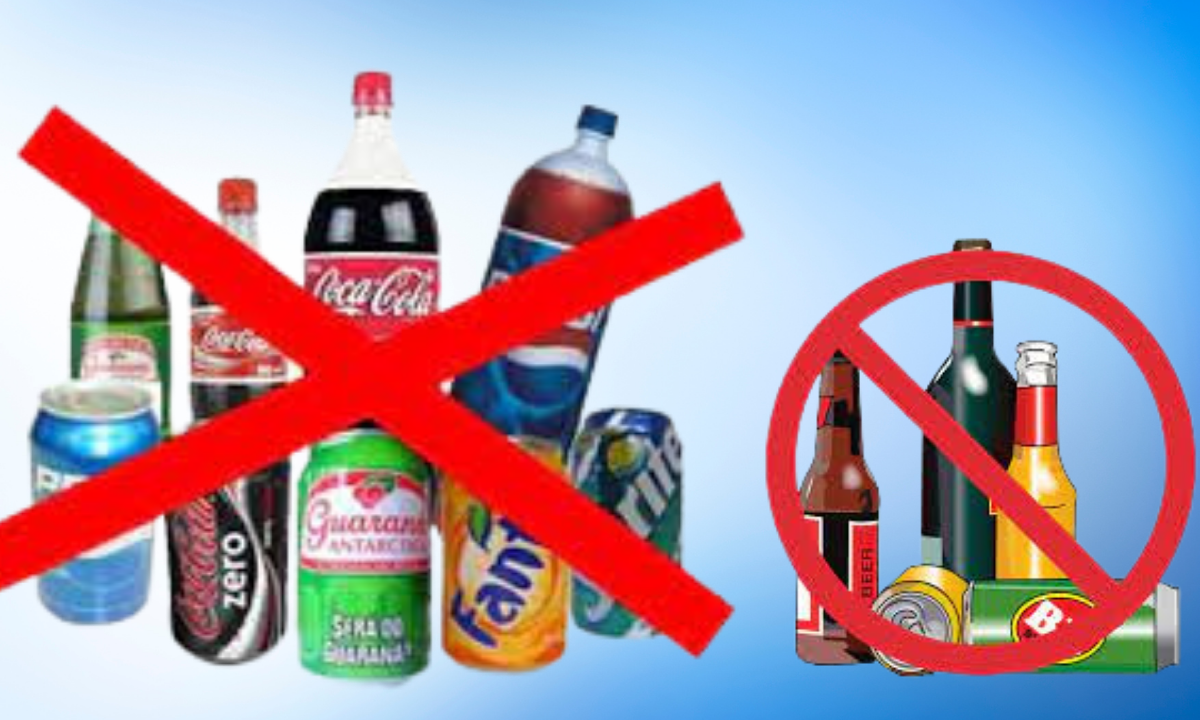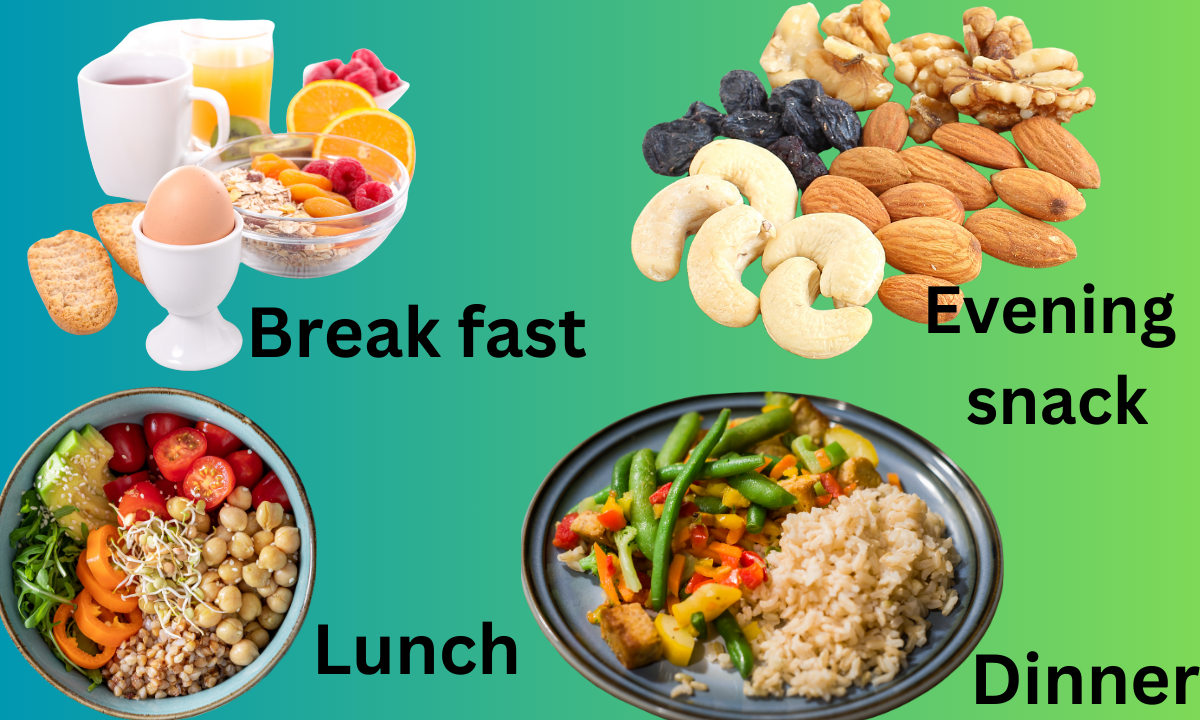Weight loss tips are practical strategies and suggestions designed to help individuals achieve and maintain a healthy weight. These tips often focus on balancing calorie intake with physical activity, making healthier food choices, and developing sustainable lifestyle habits. Here are some effective weight loss tips: Set Realistic Goals, Monitor Portion Sizes, Eat a Balanced Diet, Stay Hydrated, Increase Physical Activity, Eat Mindfully, Limit Processed Foods and Sugars, Plan Meals and Snacks, Avoid Fad Diets.
Eat Varied, Nutritionally Dense Foods
Healthful meals and snacks should form the foundation of the human diet. A simple way to create a meal plan is to make sure that each meal consists of 50 percent fruit and vegetables, 25 percent whole grains, and 25 percent protein.
The following foods are healthful and often rich in nutrients:
- fresh fruits and vegetables
- fish
- legumes
- nuts
- seeds
- whole grains, such as brown rice and oatmeal
Foods to avoid eating include:
- foods with added oils, butter, and sugar
- fatty red or processed meats
- baked goods
- bagels
- white bread
- processed foods
Keep A Food And Weight Diary
Self-monitoring is a critical factor in successfully losing weight. People can use a paper diary, mobile app, or dedicated website to record every item of food that they consume each day. They can also measure their progress by recording their weight on a weekly basis. regular physical activity and exercise
Regular Physical Activity And Exercise
Some benefits of physical activity for brain health happen right after a session of moderate-to-vigorous physical activity. Benefits include improved thinking or cognition for children 6 to 13 and reduced short-term feelings of anxiety for adults. Regular physical activity can help keep your thinking, learning, and judgment skills sharp as you age. It can also reduce your risk of depression and anxiety and help you sleep better.
Exclude Liquid Calorie
When you’re looking to exclude liquid calories from your diet, you’re essentially focusing on avoiding calories that come from beverages. This can be beneficial for managing weight, improving overall health, or simply reducing unnecessary calorie intake. Here are some tips to help you with that.

Choose Water:
Opt for water as your primary beverage. It’s calorie-free and essential for hydration. If you want some flavor, try adding a slice of lemon, lime, or cucumber.
Herbal Teas:
Unsweetened herbal teas can be a great alternative. They come in various flavors and typically contain no calories.
Black Coffee:
If you enjoy coffee, go for it black. Avoid adding cream, sugar, or flavored syrups which contribute to liquid calorie intake.
Skip Sugary Drinks:
Avoid sodas, fruit juices, sports drinks, and energy drinks. These can be high in sugars and calories.
Control Portions
Controlling your portions doesn’t mean you need to eat tiny amounts or measure out precisely the number of peas on your plate. But if we’re eating too much, then we may need to retrain our brains to see a smaller-than-normal portion as satisfying enough. Here are some tricks to try.
Use A Smaller Plate
A standard-sized portion will look small on a larger plate, making you feel dissatisfied. Use a smaller plate to prevent overloading.
Don’t Double Your Carbs
If you already have some starchy carbohydrate with your meal, do you need bread, naan or chapatis as well? You could be doubling your portion, so if you like to have some bread on the side, you’ll need to cut down the amount of starchy carbohydrate on your plate accordingly.
Don’t Pick At Leftovers
If you find it happens regularly, then get into the habit of cooking less or have a plan to use up leftovers in another meal.
Check food labels
Make sure you know what portion the nutrition information on the front of pack relates to. It might be different to the amount you would normally serve yourself.
Eat Mindfully
Eating mindfully is all about being fully present and engaged with the act of eating. It helps you appreciate your food, recognize your body’s hunger and fullness cues, and make more thoughtful food choices. Here are some tips to help you eat mindfully.
Eliminate Distractions:
Try to eat without distractions like TV, smartphones, or computers. Focus solely on your meal to help you be more aware of what and how much you’re eating.
Eat Without Judgment:
Avoid labeling foods as “good” or “bad.” Instead, focus on how the food makes you feel and make choices that align with your health goals.
Mindful Snacking:
When snacking, choose healthier options and be mindful of the portion size. Eating mindfully can help prevent
Stay Hydrated:
Sometimes thirst can be mistaken for hunger. Drink water throughout the day and consider having a glass of water before your meal.
Preparation For Diet Plan

Stocking a kitchen with diet-friendly foods and creating structured meal plans will result in more significant weight loss.
People looking to lose weight or keep it off should clear their kitchen of processed or junk foods and ensure that they have the ingredients on hand to make simple, healthful meals. Doing this can prevent quick, unplanned, and careless eating.
Planning food choices before getting to social events or restaurants might also make the process easier.
Impetus And Cue Control
Many social and environmental cues might encourage unnecessary eating. For example, some people are more likely to overeat while watching television. Others have trouble passing a bowl of candy to someone else without taking a piece.
By being aware of what may trigger the desire to snack on empty calories, people can think of ways to adjust their routine to limit these triggers.
Stay Positive
Weight loss is a gradual process, and a person may feel discouraged if the pounds do not drop off at quite the rate that they had anticipated.
Some days will be harder than others when sticking to a weight loss or maintenance program. A successful weight-loss program requires the individual to persevere and not give up when self-change seems too difficult.
Some people might need to reset their goals, potentially by adjusting the total number of calories they are aiming to eat or changing their exercise patterns.
The important thing is to keep a positive outlook and be persistent in working toward overcoming the barriers to successful weight loss.


